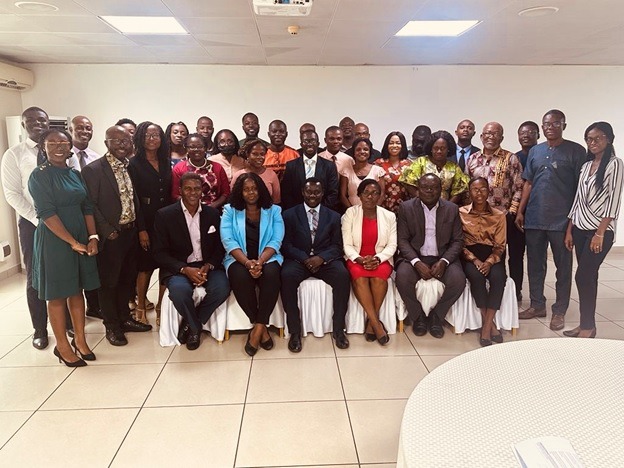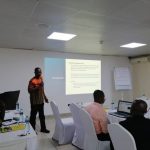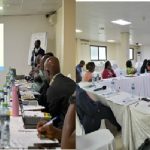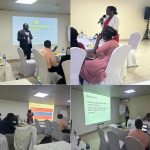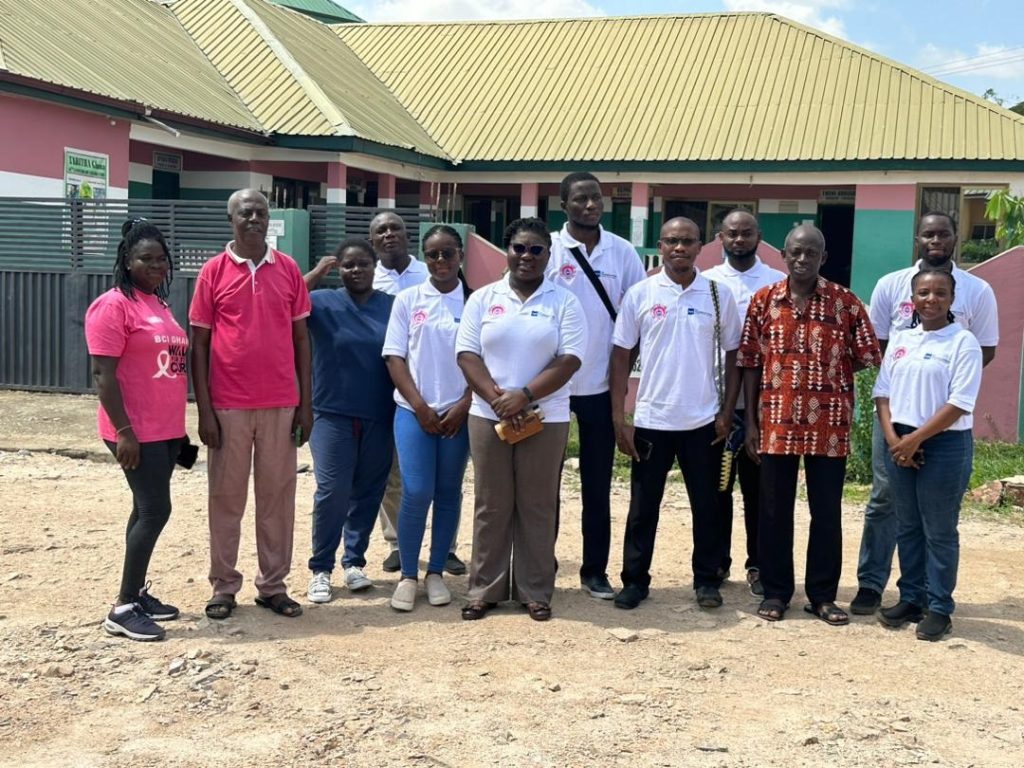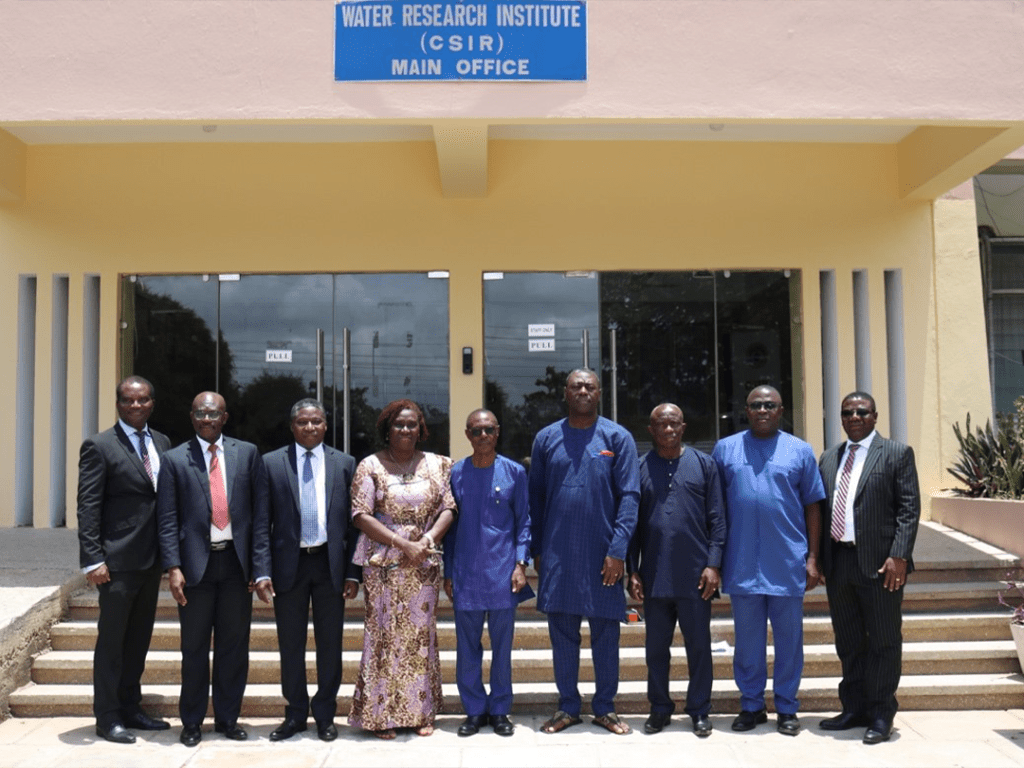CSIR and WHO Dissemination Seminar on Antimicrobial Resistance
The CSIR-Water Research Institute and World Health Organization (WHO) Ghana have successfully organized a dissemination seminar in Accra to present the findings of the Structured Operational Research Training Initiative (SORT IT) on Antimicrobial Resistance (AMR). SORT IT is a mentoring program aimed at building the capacity of frontline workers in operational research, transforming routinely generated data into publishable information, and providing evidence that can drive change. In May 2015, the Sixty-eighth World Health Assembly endorsed a Global Action Plan (GAP) to address the growing problem of antimicrobial resistance. In line with this, the President of the Republic of Ghana, Nana Addo Dankwa Akuffo Addo, launched Ghana’s Antimicrobial Resistance Policy and National Action Plan in 2018. The objective was to conduct research intended to generate and utilize evidence in combating the emergence, spread, and health impact of antimicrobial resistance.
Antimicrobial resistance (AMR) is a significant global concern that arises when microorganisms, such as bacteria, viruses, parasites, and fungi, develop resistance to antimicrobial drugs, including antibiotics. This resistance hinders the effectiveness of these drugs in treating infections and illnesses, posing severe consequences for public health, animal welfare, and the environment. AMR is recognized as one of the top ten global health problems, with current trends in resistant infections in humans and livestock indicating the possibility of a post-antibiotic age. The dissemination seminar was aimed at creating a shared sense of urgency and purpose in addressing the formidable challenges posed by antimicrobial resistance.
Dr George Hedidor, the WHO representative, expressed satisfaction with hosting the program, stating that WHO has been at the forefront of supporting countries in implementing actions against AMR since the launch of the Global Action Plan. He emphasized the urgency of the AMR challenge, noting that “over 10 million people may die around 2050 if nothing is done.” In Ghana, WHO has supported the implementation of the National Action Plan, ensuring adherence to strategic objectives such as awareness creation, research, surveillance, biosecurity, and optimized use of antimicrobials. Research plays a vital role in the fight against AMR.
The National Action Plan has five strategic objectives, one of which is generating evidence to understand the complexities and develop appropriate approaches. The other objectives include creating awareness, promoting the rational use of antimicrobials, making an economic case, and enhancing surveillance. In line with these objectives, the WHO has brought together scientists from various sectors to engage in studies that contribute evidence to support national efforts in combating AMR. Twelve scientists from academic institutions, healthcare facilities and research institutions such as the University of Ghana, Kwame Nkrumah University of Science and Technology (KNUST), University of Health and Allied Sciences (UHAS), Council for Scientific and Industrial Research (CSIR), Korle Bu Teaching hospital, 37 Military hospital, Ho Teaching hospital and some private laboratories participated in these studies. Their diverse backgrounds have resulted in the generation of valuable evidence that can inform policy actions. The researchers have also developed policy briefs, summarizing their work and highlighting key findings. Through these research studies, the complexities of this global threat are unraveled to pave the way for evidence-based solutions. Together, we have the power to make a profound impact on public health.
Mrs. Lady Asantewah Boamah a Principal Technologist at the CSIR Water Research Institute and a coordinator for the seminar, said the CSIR-Water Research Institute is committed to achieving objective four of the Ghana National AMR Action Plan to improve knowledge and evidence in AMR through surveillance and research. She said surveillance is important to monitor changes in microbial populations and allow the early detection of resistant strains of public health significance. She advised the public to practice good hygiene, which will be the first step towards preventing infections in the first place and stopping the use of unprescribed antibiotics.
Speaking at the seminar, Prof Kwame Buabeng, the chairperson of the AMR platform, stated that the “AMR platform is a multi-sectoral, multi-stakeholder platform that has been working since 2011 to help the nation deal with the menace of antimicrobial resistance. The problem at hand is a complex one, posing a significant threat to the health of humans, animals, and the entire ecosystem.” The World Health Organization (WHO) acknowledges AMR as a global health challenge and a developmental threat with a significant impact on the national economy, requiring multi-sectoral actions for containment. AMR is a complex issue that demands comprehensive solutions.
Mr Saviour Yevutsey from the Ministry of Health highlighted the magnitude of the fight against AMR and its impact on various sectors. He shared his experience of discovering that antibiotics were being used for plant growth during a visit to Thailand in 2012. He emphasized the need to enhance efforts to combat resistant bacteria, as we are gradually losing the battle. The overall goal of the implemented policy is to improve and sustain population health, enhance food security, and ensure responsible use and access to safe, effective, and affordable antimicrobials of good quality. For instance, it is essential to be aware that an amoxicillin suspension mixture loses 50% of its activity after 72 hours when kept at room temperature.
The studies were divided into three research areas, the environment, animal and clinical (human).
The Environment:
The Environmental Protection Agency (EPA) researched high levels of antimicrobial-resistant bacteria found in effluents from seafood processing facilities in Tema, highlighting the EPA Act 490, mandating the agency to monitor environmental pollutants and their impact. Effluents discharged from seafood processing facilities, which are rich in organic matter, serve as nutrient sources for microbial growth. The study found that 57% of bacteria in the effluent samples showed drug resistance to at least one antibiotic, indicating an increased spread of AMR in the environment.
Researchers from the CSIR Water Research Institute revealed the presence of antibiotic-resistant bacteria in drinking water samples from the Greater Accra region. Due to the findings which included the detection of multi-drug resistant bacteria, the study emphasized the need for continuous AMR surveillance and additional water treatment. It also highlighted the issue of contaminated drinking water, citing the 2018 Multiple Indicator Cluster Survey report, millions of Ghanaians do not have access to safely managed drinking water. The research team also investigated bacteria contamination and antibiotic resistance in freshly harvested lettuce. Many vegetable farms in Ghana are irrigated with water contaminated by human and animal waste, which can contain antimicrobial-resistant bacteria. This can pose risks to human health through direct contact or consumption of contaminated lettuce. Supporting farmers in adopting improved and hygienic farming practices is crucial to addressing this threat and ensuring consumer confidence in the safety of vegetables.
Animals:
Research on antimicrobial, multi-drug, and colistin resistance in Enterobacteriaceae in healthy pigs in the Greater Accra Region was conducted by the CSIR Animal Research Institute. The research highlighted the concern of increasing rates of multi-drug resistance and the need for a one-health approach. Pigs can act as reservoirs of AMR, and transmission to humans can occur through contact with infected animals or their environment. Occupational exposure to resistant bacteria in pig farming environments can lead to infections in farmers, farm workers, and veterinarians. Consumption of pork or pork products contaminated with AMR bacteria can also contribute to the spread of resistant strains to humans. Addressing antimicrobial resistance in animals is crucial to protecting human health.
Clinical:
Research studies from the various healthcare facilities (Korle Bu Teaching Hospital, 37 Military Hospital, Ho Teaching Hospital, Eastern Regional Hospital, MDS Lancet Laboratory and Bishop Ackon Memorial Christian Eye Centre) highlighted among others, the challenges with blood culture and antibiotic susceptibility testing protocols before treatment. As well as the inappropriate and over prescription of antibiotics at these facilities.
The inappropriate and excessive use of antibiotics is a major driver of antibiotic resistance, leading to increased mortality and morbidity. Resistance also increases healthcare costs due to the longer duration of illness and the need for more expensive alternatives. To safeguard against inappropriate use of antibiotics, the World Health Organization recommends that antibiotic prescriptions should not exceed 27% of all prescriptions. In a post-antibiotic era, common infections such as pneumonia, urinary tract infections, and surgical site infections will become increasingly difficult to treat. AMR reduces the effectiveness of antibiotics, limiting treatment options and potentially leading to treatment failures. Proper antimicrobial stewardship, improved infection prevention and control measures, surveillance systems, and research for the development of new antimicrobials and alternative treatment strategies are crucial to addressing AMR. Collaboration between healthcare professionals, veterinarians, policymakers, researchers, and the public is essential to mitigate the adverse effects of AMR on the environment, animal health, and human well-being.
Let us unite in this collective mission to safeguard the effectiveness of antibiotics and secure a healthier future for generations to come. AMR affects the environment, humans, and animals alike, and it is our shared responsibility to combat this global challenge.


